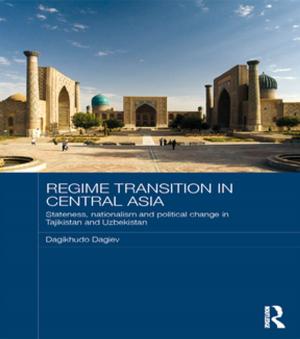Orthodox Christians in the Late Ottoman Empire
A Study of Communal Relations in Anatolia
Nonfiction, History, Middle East, Social & Cultural Studies, Social Science| Author: | Ayse Ozil | ISBN: | 9781135104030 |
| Publisher: | Taylor and Francis | Publication: | February 15, 2013 |
| Imprint: | Routledge | Language: | English |
| Author: | Ayse Ozil |
| ISBN: | 9781135104030 |
| Publisher: | Taylor and Francis |
| Publication: | February 15, 2013 |
| Imprint: | Routledge |
| Language: | English |
Orthodox Christians, as well as other non-Muslims of the Ottoman Empire, have long been treated as insular and homogenous entities, distinctly different and separate from the rest of the Ottoman world. Despite this view prevailing in mainstream historiography, some scholars have suggested recently that non-Muslim life was not as monolithic and rigid as is often supposed.
In an endeavour to understand the ties among Christians within the administrative, social and economic structures of the imperial and Orthodox Christian worlds, Ayşe Ozil engages in a rarely undertaken comparative analysis of Ottoman, Greek and European archival sources. Using the hitherto under-explored region of Hüdavendigar in the heartland of the empire as a case study, she questions commonplace assumptions about the meaning of ethno-religious community within a Middle Eastern imperial framework.
Offering a more nuanced investigation of Ottoman Christians by connecting Ottoman and Greek history, which are often treated in isolation from one another, this work sheds new light on communal existence.
Orthodox Christians, as well as other non-Muslims of the Ottoman Empire, have long been treated as insular and homogenous entities, distinctly different and separate from the rest of the Ottoman world. Despite this view prevailing in mainstream historiography, some scholars have suggested recently that non-Muslim life was not as monolithic and rigid as is often supposed.
In an endeavour to understand the ties among Christians within the administrative, social and economic structures of the imperial and Orthodox Christian worlds, Ayşe Ozil engages in a rarely undertaken comparative analysis of Ottoman, Greek and European archival sources. Using the hitherto under-explored region of Hüdavendigar in the heartland of the empire as a case study, she questions commonplace assumptions about the meaning of ethno-religious community within a Middle Eastern imperial framework.
Offering a more nuanced investigation of Ottoman Christians by connecting Ottoman and Greek history, which are often treated in isolation from one another, this work sheds new light on communal existence.















